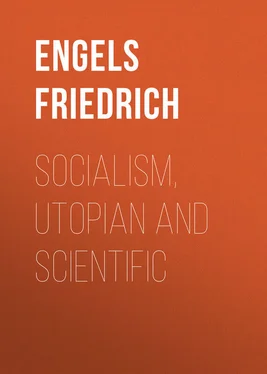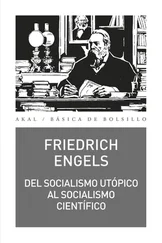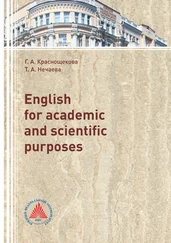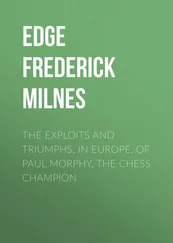Friedrich Engels - Socialism, Utopian and Scientific
Здесь есть возможность читать онлайн «Friedrich Engels - Socialism, Utopian and Scientific» — ознакомительный отрывок электронной книги совершенно бесплатно, а после прочтения отрывка купить полную версию. В некоторых случаях можно слушать аудио, скачать через торрент в формате fb2 и присутствует краткое содержание. Жанр: История, foreign_antique, foreign_prose, на английском языке. Описание произведения, (предисловие) а так же отзывы посетителей доступны на портале библиотеки ЛибКат.
- Название:Socialism, Utopian and Scientific
- Автор:
- Жанр:
- Год:неизвестен
- ISBN:нет данных
- Рейтинг книги:5 / 5. Голосов: 1
-
Избранное:Добавить в избранное
- Отзывы:
-
Ваша оценка:
- 100
- 1
- 2
- 3
- 4
- 5
Socialism, Utopian and Scientific: краткое содержание, описание и аннотация
Предлагаем к чтению аннотацию, описание, краткое содержание или предисловие (зависит от того, что написал сам автор книги «Socialism, Utopian and Scientific»). Если вы не нашли необходимую информацию о книге — напишите в комментариях, мы постараемся отыскать её.
Socialism, Utopian and Scientific — читать онлайн ознакомительный отрывок
Ниже представлен текст книги, разбитый по страницам. Система сохранения места последней прочитанной страницы, позволяет с удобством читать онлайн бесплатно книгу «Socialism, Utopian and Scientific», без необходимости каждый раз заново искать на чём Вы остановились. Поставьте закладку, и сможете в любой момент перейти на страницу, на которой закончили чтение.
Интервал:
Закладка:
In the meantime materialism passed from England to France, where it met and coalesced with another materialistic school of philosophers, a branch of Cartesianism. In France, too, it remained at first an exclusively aristocratic doctrine. But soon its revolutionary character asserted itself. The French materialists did not limit their criticism to matters of religious belief; they extended it to whatever scientific tradition or political institution they met with; and to prove the claim of their doctrine to universal application, they took the shortest cut, and boldly applied it to all subjects of knowledge in the giant work after which they were named – the Encyclopédie . Thus, in one or the other of its two forms – avowed materialism or deism – it became the creed of the whole cultured youth of France; so much so that, when the great Revolution broke out, the doctrine hatched by English Royalists gave a theoretical flag to French Republicans and Terrorists, and furnished the text for the Declaration of the Rights of Man. The great French Revolution was the third uprising of the bourgeoisie, but the first that had entirely cast off the religious cloak, and was fought out on undisguised political lines; it was the first, too, that was really fought out to the destruction of one of the combatants, the aristocracy, and the complete triumph of the other, the bourgeoisie. In England the continuity of pre-revolutionary and post-revolutionary institutions, and the compromise between landlords and capitalists, found its expression in the continuity of judicial precedents and in the religious preservation of the feudal forms of the law. In France the Revolution constituted a complete breach with the traditions of the past; it cleared out the very last vestiges of feudalism, and created in the Code Civil a masterly adaptation of the old Roman law – that almost perfect expression of the juridical relations corresponding to the economic stage called by Marx the production of commodities – to modern capitalistic conditions; so masterly that this French revolutionary code still serves as a model for reforms of the law of property in all other countries, not excepting England. Let us, however, not forget that if English law continues to express the economic relations of capitalistic society in that barbarous feudal language which corresponds to the thing expressed, just as English spelling corresponds to English pronunciation — vous écrivez Londres et vous prononcez Constantinople , said a Frenchman – that same English law is the only one which has preserved through ages, and transmitted to America and the Colonies the best part of that old Germanic personal freedom, local self-government, and independence from all interference but that of the law courts, which on the Continent has been lost during the period of absolute monarchy, and has nowhere been as yet fully recovered.
To return to our British bourgeois. The French Revolution gave him a splendid opportunity, with the help of the Continental monarchies, to destroy French maritime commerce, to annex French colonies, and to crush the last French pretensions to maritime rivalry. That was one reason why he fought it. Another was that the ways of this revolution went very much against his grain. Not only its "execrable" terrorism, but the very attempt to carry bourgeois rule to extremes. What should the British bourgeois do without his aristocracy, that taught him manners, such as they were, and invented fashions for him – that furnished officers for the army, which kept order at home, and the navy, which conquered colonial possessions and new markets abroad? There was indeed a progressive minority of the bourgeoisie, that minority whose interests were not so well attended to under the compromise; this section, composed chiefly of the less wealthy middle-class, did sympathize with the Revolution, but it was powerless in Parliament.
Thus, if materialism became the creed of the French Revolution, the God-fearing English bourgeois held all the faster to his religion. Had not the reign of terror in Paris proved what was the upshot, if the religious instincts of the masses were lost? The more materialism spread from France to neighboring countries, and was reinforced by similar doctrinal currents, notably by German philosophy, the more, in fact, materialism and freethought generally became, on the Continent, the necessary qualifications of a cultivated man, the more stubbornly the English middle-class stuck to its manifold religious creeds. These creeds might differ from one another, but they were, all of them, distinctly religious, Christian creeds.
Конец ознакомительного фрагмента.
Текст предоставлен ООО «ЛитРес».
Прочитайте эту книгу целиком, купив полную легальную версию на ЛитРес.
Безопасно оплатить книгу можно банковской картой Visa, MasterCard, Maestro, со счета мобильного телефона, с платежного терминала, в салоне МТС или Связной, через PayPal, WebMoney, Яндекс.Деньги, QIWI Кошелек, бонусными картами или другим удобным Вам способом.
1
"Qual" is a philosophical play upon words. Qual literally means torture, a pain which drives to action of some kind; at the same time the mystic Böhme puts into the German word something of the meaning of the Latin qualitas ; his "qual" was the activating principle arising from, and promoting in its turn, the spontaneous development of the thing, relation, or person subject to it, in contradistinction to a pain inflicted from without.
2
Marx and Engels, "Die Heilige Familie," Frankfurt a. M. 1845, pp. 201-204.
Интервал:
Закладка:
Похожие книги на «Socialism, Utopian and Scientific»
Представляем Вашему вниманию похожие книги на «Socialism, Utopian and Scientific» списком для выбора. Мы отобрали схожую по названию и смыслу литературу в надежде предоставить читателям больше вариантов отыскать новые, интересные, ещё непрочитанные произведения.
Обсуждение, отзывы о книге «Socialism, Utopian and Scientific» и просто собственные мнения читателей. Оставьте ваши комментарии, напишите, что Вы думаете о произведении, его смысле или главных героях. Укажите что конкретно понравилось, а что нет, и почему Вы так считаете.












